Based on the 2012 novel of the same name by M. L. Stedman, The Light Between Oceans is a romantic period drama film starring Michael Fassbender and Alicia Vikander in the leading roles, alongside a cast consisting of Rachel Weisz, Bryan Brown, Jack Thompson and various other big talents in the world of acting.
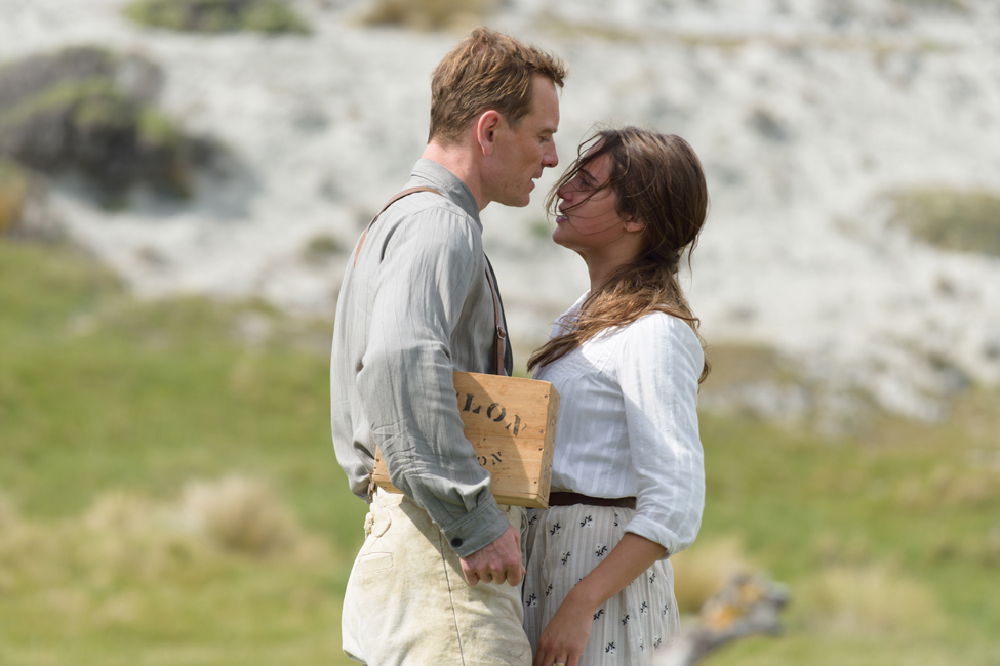
Michael Fassbender and Alicia Vikander
Here we have an exclusive interview with Fassbender and Vikander as well as director Derek Cianfrance, who discuss the challenges of filming such an emotional movie, adapting an already-established story for the big screen and more…
Derek, what was the attraction to M. L. Stedman’s novel for a film adaptation?
When I first read the book, I was taken by the emotion of the story. I was reading in Brooklyn on the subway, and it was around rush hour and I was crying and I was just thinking if anyone else was reading this they would be crying too. When I sent it to Michael (Fassbender) and Alicia (Vikander) they cried too. Basically, I wanted to do it because I wanted to cry more, and make other people cry.
Alicia, your character has a strong narrative arc, and she goes through a lot. How did you find this character as an actor?
She is a complex character. When you find her, like most people straight after the First World War, she is someone who has experienced loss. She is still young, coming of age, becoming a woman. She is still quite vain, but she also has a lot of spirit. I loved, both in the novel and the script, that she is almost unlikeable at the beginning from the way she acts, but that comes from the fact that she never does anything that doesn’t stem from the heart, she always wants to do good. I admire her - she is in a world of mourning for her brother, but she teems with life, and wants to create life and has a husband. It is a big arc that she goes on. I think as an actor you look to play good people, but people are complex and, good or not, they don’t always act in the right way or with the outcome they intended.
Michael, from the first scene there is a tremendous weight on Tom’s shoulders, and clear signs that he has experienced a lot before we meet him on screen. Did you and Derek Cianfrance discuss your character’s background?
It was something that we talked about a lot. We would go for walks and chat about life, and things that didn’t seem directly related to the script. I was very aware that with a character like Tom it must be written on his face, his soul, and that he is carrying this shadow of death from what he witnessed in France, and the effect of experiencing the horrors of World War One. He carries a survivor’s guilt with him, and you want to convey why he would pursue a job that will put him in complete isolation.
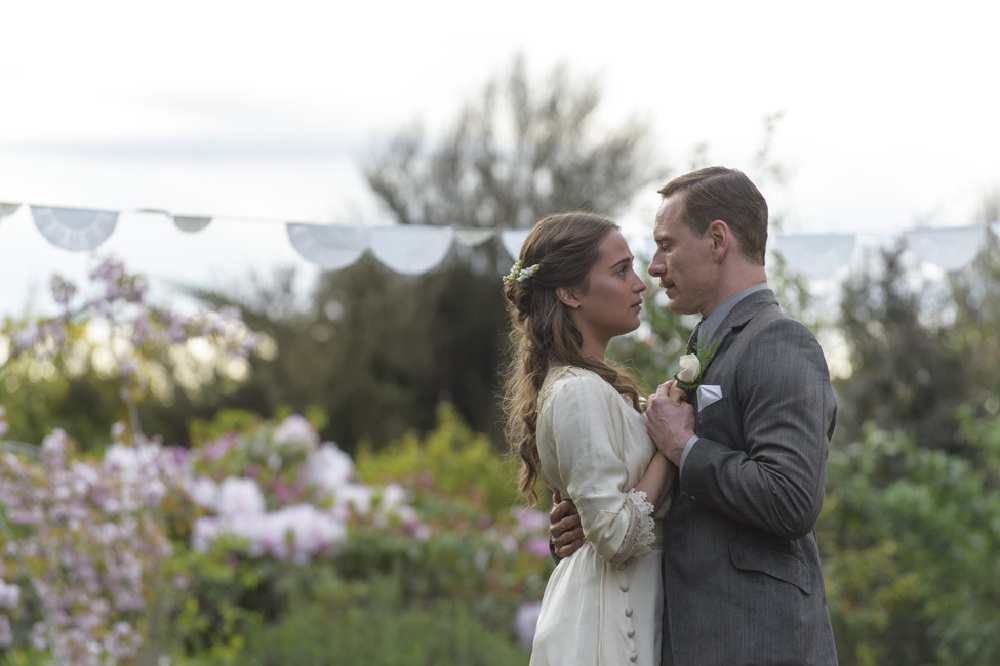
Alicia, how did you get the accent right?
We discussed the accent early on, where we questioned whether I should do an RP accent, knowing that a lot of the Australian sounds came in after the Second World War. However, when I was speaking with my dialect coach she said "I think there’s a way of morphing in the beginning of what is now considered as Australian sounds". We tried to find that own voice in the same way, although this is obviously set in a fictional town in Australia. I tried to find a voice of that period, which I think is important. With not working in my native language, it becomes a tool, and if you come to work with the right preparation, it allows to you to become the character when you speak in that accent. That can be exciting, it is almost like a fast-track into the character.
Derek, how important is the concept of faith in the film? And Michael, how does that shape your character’s actions?
I grew up Catholic, so I am what you call a recovering Catholic. I feel that this is a question about Tom. He can’t live anymore because he is so full of guilt. I can relate as a Catholic, I can relate to that because with every choice that I make I just feel wracked by guilt. These characters live in this world. There is this cloud of guilt and sin over Tom at the beginning of the movie, and it moves with him. Ultimately, this is a film about forgiveness, about Tom’s sins, about Isabel’s sins, and about human error. This is a human story, about human mistakes based on good intentions, and to me that is where religion comes into this movie and the concept of forgiveness.
And Alicia, what are your thoughts?
I think that with these characters, the time, this point in history right after the war, where everyone has been put through a lot, feeling guilt. I think that if this film has a message it is one of forgiveness and that you can relate to these characters. I think that with stories these days you are always looking for a protagonist and a villain, and with a story like this it isn’t as clean cut. And that is the beauty of it. With these three characters, Tom, Isabel and Hannah you can feel and sympathise with what they are going through, even the characters who have done terrible things. In the end, they all find a way to take responsibility for their actions and people find a way to forgive.
Michael, what do you feel is the role of religion in this film?
With the time that we are dealing with I think that religion played a larger role in everyday life than it does now. For Tom, I think that his experiences in the war have made him a religious person. In the book, he makes a pact with God, saying that if he gets out of the war alive he promises not to bring harm to another human being. I think that being in that scenario as a soldier, constantly faced with the threat of death, he found faith, if he didn’t have it already. I think he certainly believes in God, and the idea that there will be consequences for the actions in this life in the next.
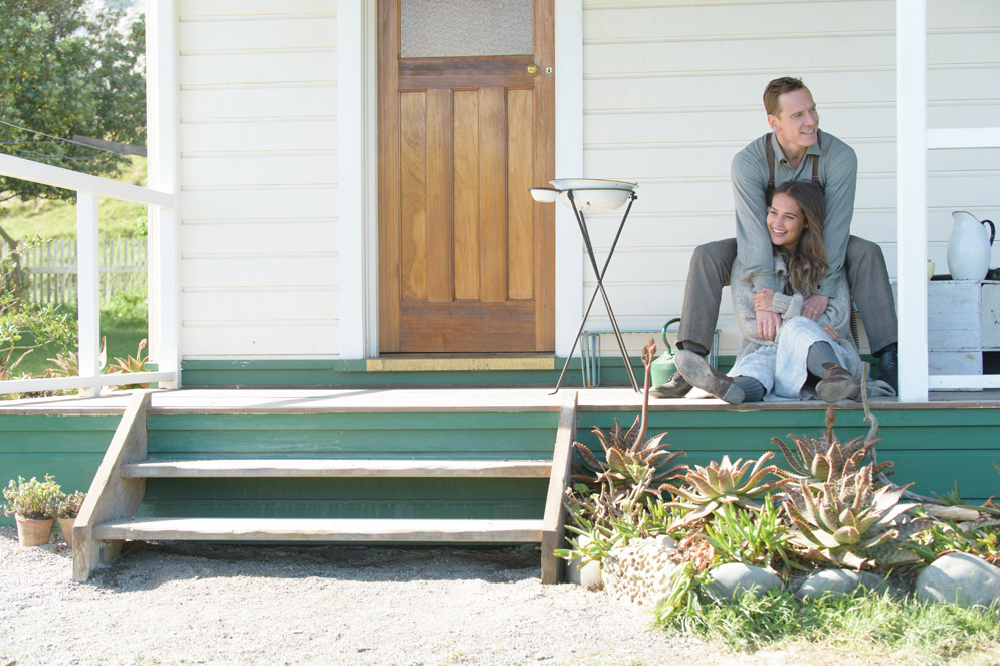
Derek, how do you prevent this type of story tipping into melodrama?
I grew up watching melodramas and I always loved them, especially Douglas Sirk movies, as well as Powell and Pressburger movies and Victor Fleming and David Lean. I also grew up watching Days of Our Lives, because my mum would watch it every day. I don’t understand the genre; I do understand the need for emotional truth. When you are making a movie about characters making decisions based on emotions the emotions must be heightened. Any time I am emotional I usually regret it, like crying on a subway train, or yelling at another parent on the side-line of my son’s soccer game – I regret that. These characters are in a ripe emotional state all the time. Our approach was to be as truthful as we could with representing these emotions. I had two great actors attacking that for me, and we were all the truth metre for one another. Any time we felt we were pushing in the wrong direction, I would try and pull it back. Eight weeks in, I remember saying, “Whatever you do with this, don’t cry.” However, it was so ripe with emotion you couldn’t help it.
Michael, how did you prevent this type of story tipping into melodrama as an actor?
What is the definition of a melodrama? It is a scenario where the good is good, the bad is bad, and played in a one-dimensional scenario. If the emotion becomes over weighted or too much for an audience, or weighted too much in emotion as opposed to narrative or character then as a performer that falls on to the director as to where the director wants it to go. As an actor you just want to give as many options as you can for them to choose from. So, if we are doing a scene we will do it with different intent, or different emotional ranges to get what we want, and then it is up to the director to embolden the decisions that we have made.
Alicia, how did the remote location impact on your performance?
I have done a few films now where you end up going away on location with the crew and you live close to each other. If you make a film say in London, you go home every day. It is a completely different when you have this community of working together. Derek wanted us to be out on the set. Maybe, because of the emotional nature of this production it felt more intense than other films. One of the best perks of this job is that you end up in places where you would never normally end up. When I arrived on set, every morning and every evening I would watch the sunrise and the sunset. I met Derek before the role, and we chatted in the audition, and he said, “I expect my actors to fail, and to surprise me, and to give them new experiences.” We all agreed that with this movie it was a new experience. It was very cool being out there in nature, and experiencing it. I have never felt so small against such a backdrop, with a wind that never stops, and a real sense of isolation.
Derek, was it an easy location to find for the film?
No, I spent six months trying to find the perfect place trekking over Australia and New Zealand. We were going to shoot in Australia and then Pirates of the Caribbean 5 came into town and took the tax credit away, so we had to find another spot, so we went to New Zealand. It is a gorgeous country, and because it is so far south the sun is always low in the sky. There were many great islands with lighthouses, but they all had indigenous populations of wildlife there which prevented us filming. We then found a great island, but the lighthouse wasn’t right. Then we found the place we used in the film, and the only reason that I agreed to look at it was because it was an hour and half away down a dirt road from any other town. I like going to camp when I make a movie. With this film, I felt that the isolation would feed into the production. I think, in some ways, the fact we had no distractions where we filmed, no technology, nowhere to go, meant we just had each other, and I was appreciative of the fact that we had a small, tight crew on this production.
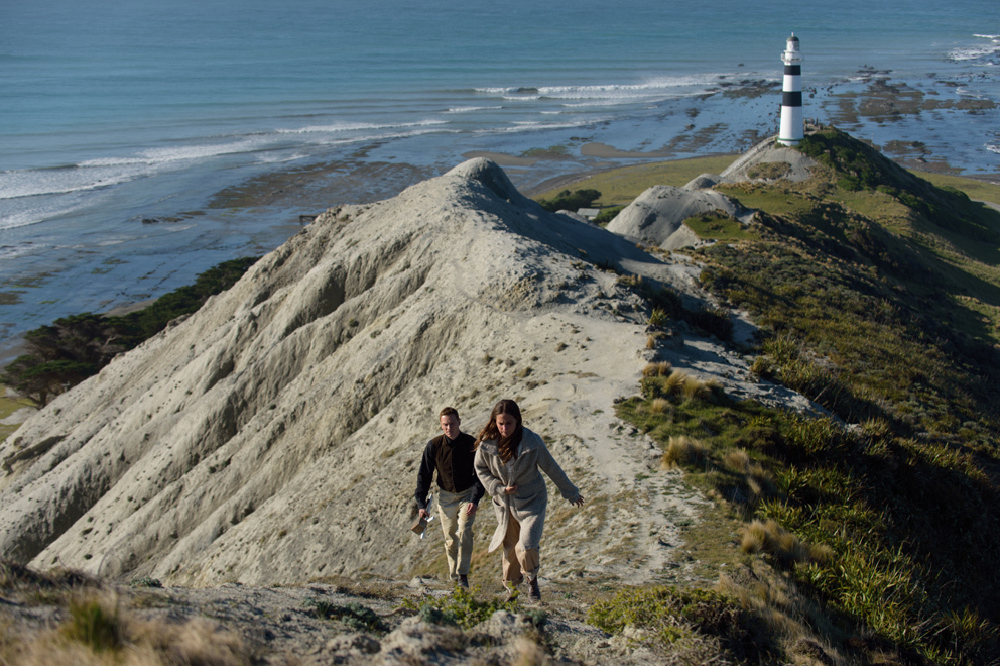
Michael, how did you find it working with the babies on the production?
Either they are crying or not. Sometimes it’s fine – when they aren’t crying. With babies, there isn’t a lot you can do. It is different with kids, because they can talk, and express themselves. What I have found, when working with kids, is that when they have to adhere to the script they can freeze up, or be rigid, but when they are improvising it is magical. I have said it before, but it is like a stream of consciousness flowing out of them. It is quite hard to keep up with them and be quick witted. Children also don’t like repeating things, and they don’t want to go again. I have always found that you can learn a lot from working with kids, and that enjoyment of creating an imaginary world is something that kids are very good at before it seems to get knocked out.
Michael, you have played a great diversity of characters, and sometimes back to back. Do you find it easy to shake off your characters or does a little part of them stay with you?
It depends on the amount of time you have going into a project. Sometimes you have anything between two months to six weeks between jobs, other times it can be a fortnight. I think when you go into another job quickly it is a great way to shake off the other character as you get into the new one. It quickly becomes about getting the next one right. Christ, I sound nuts! I’m going to be in the old people’s home and they will be going, "here goes Macbeth again". I am having flashbacks. In the past five years or so I have gone from job to job. So, I went from Trespass Against Us straight to Light Between the Oceans.
Michael, how did you set about building your on-screen relationship with Alicia?
It is difficult with all characters; with Tom, I was so taken by him. He is a hero to me. He is a man from a bygone era and they don’t make them like that anymore. There is huge dignity to him, where he doesn’t vocalise his emotions, and he is full of strength and loyalty. He is a great man. That was the difficulty. I think it is hard. Your imagination presents this character to you and you wonder if you can physically embody him, and it is hard to tell whether you are bringing that character to life, and then it becomes up to the director to assure you and tell you about what you are doing.
Derek, how did you help Alicia and Michael bring their relationship to life?
When you have spent all this time writing, and you get so sick of it by the time you get on set because these characters are in your head all the time. When you get on set and it must become real, and you have these two great actors, it then becomes a thrill again. As a director, the essence of filmmaking is in the show. Michael to me was a heavy weight champ, so when Alicia would show up she would show up, and she was like the thoroughbred who kept running. They kept raising the bar for each other on set, it was great watching them pushing each other. Then what was beautiful was when they had each other’s backs.
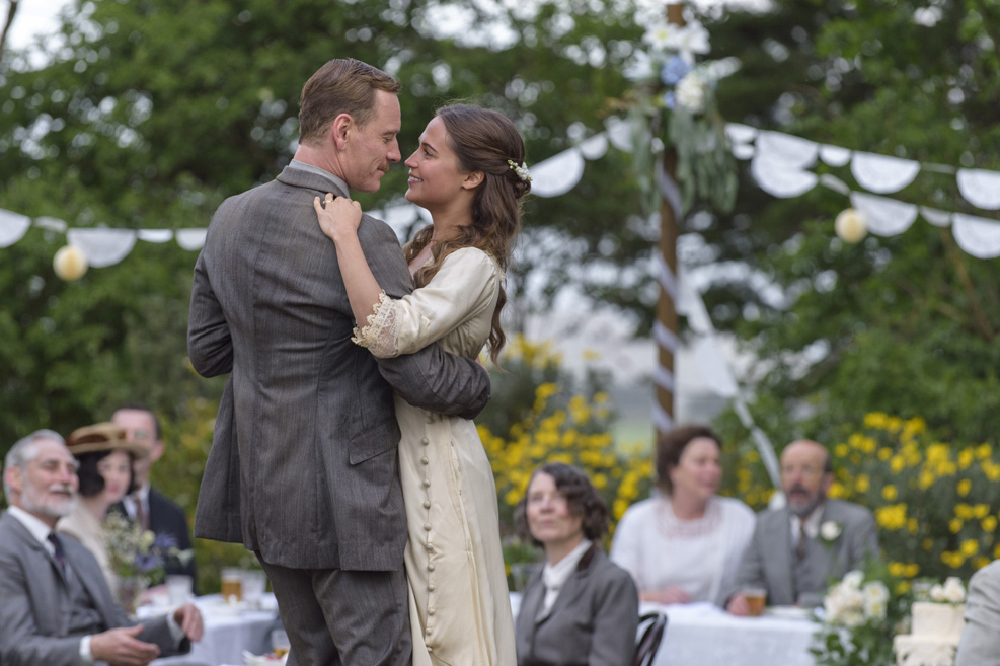
The Light Between Oceans releases on DVD and Blu-ray from March 13, 2017 – available to pre-order now from Amazon – and is available digitally NOW!
Tagged in Michael Fassbender Alicia Vikander

